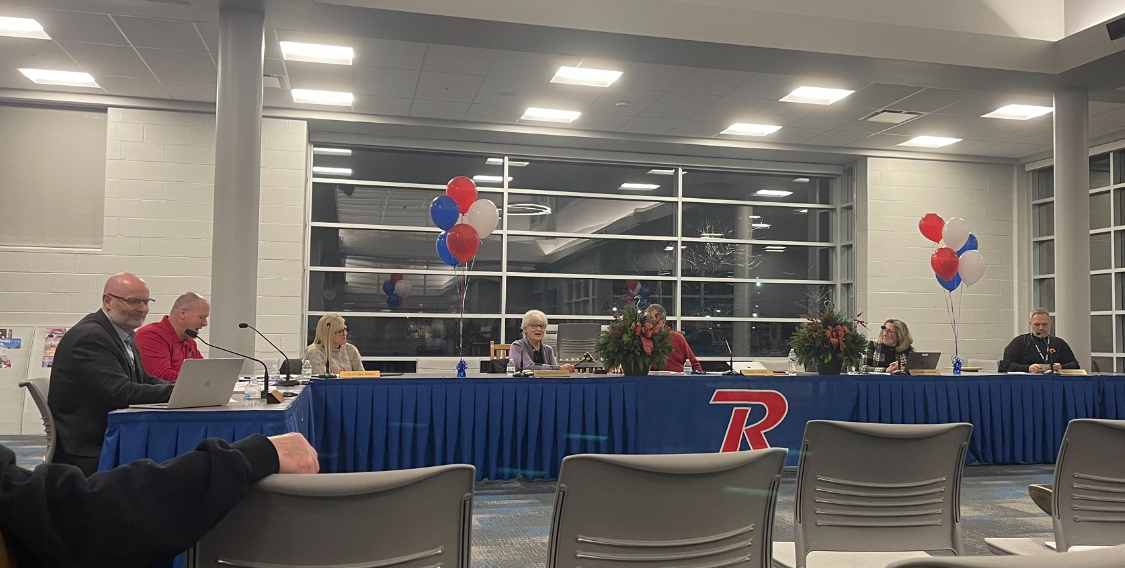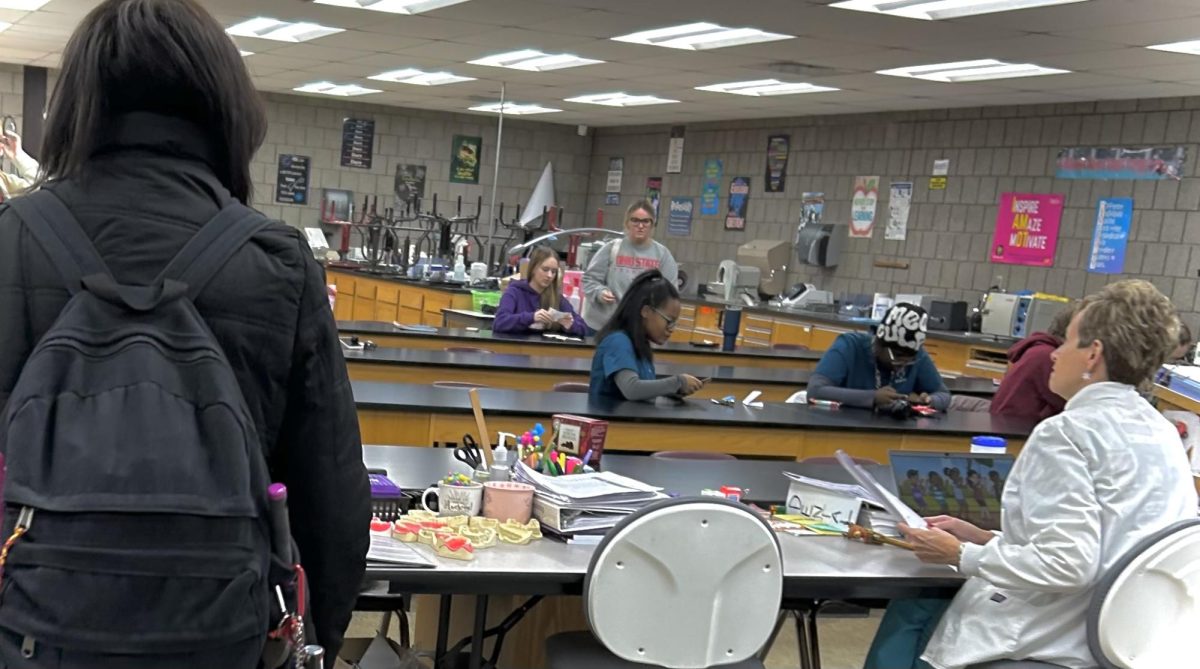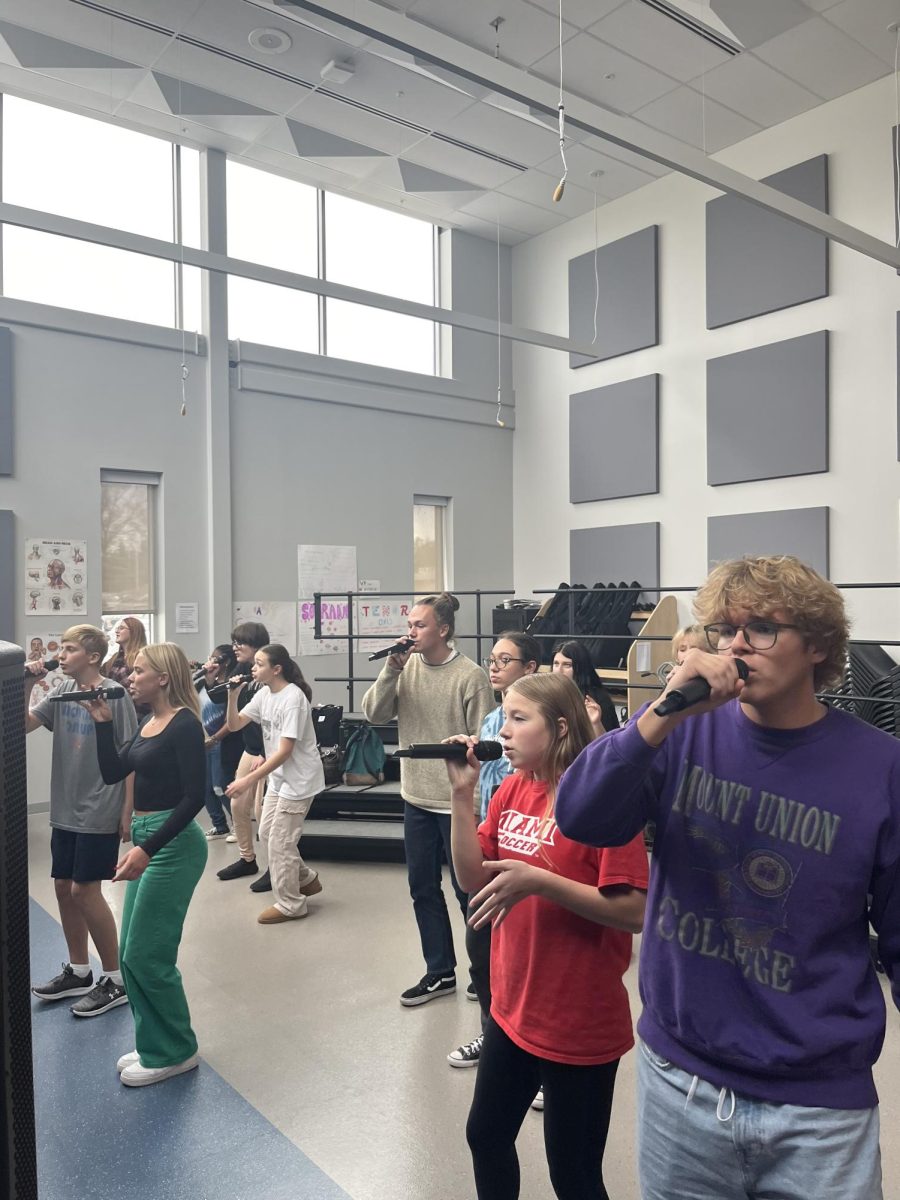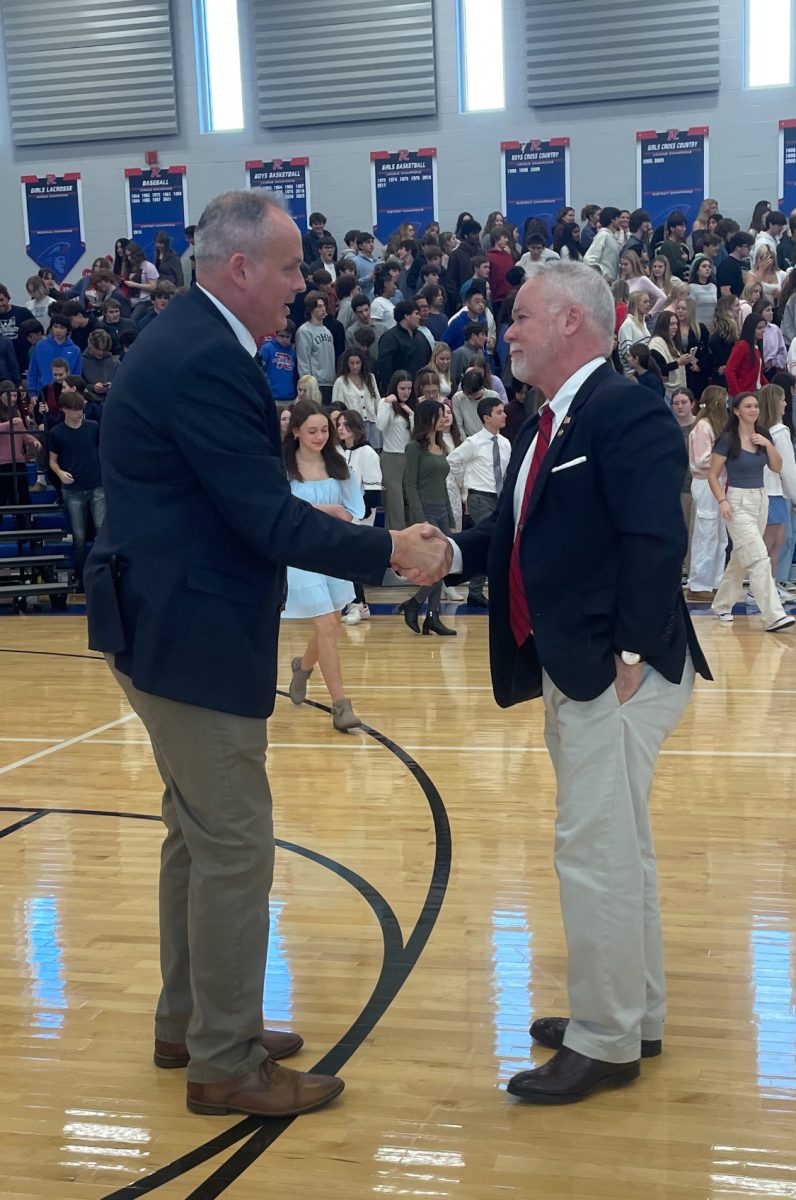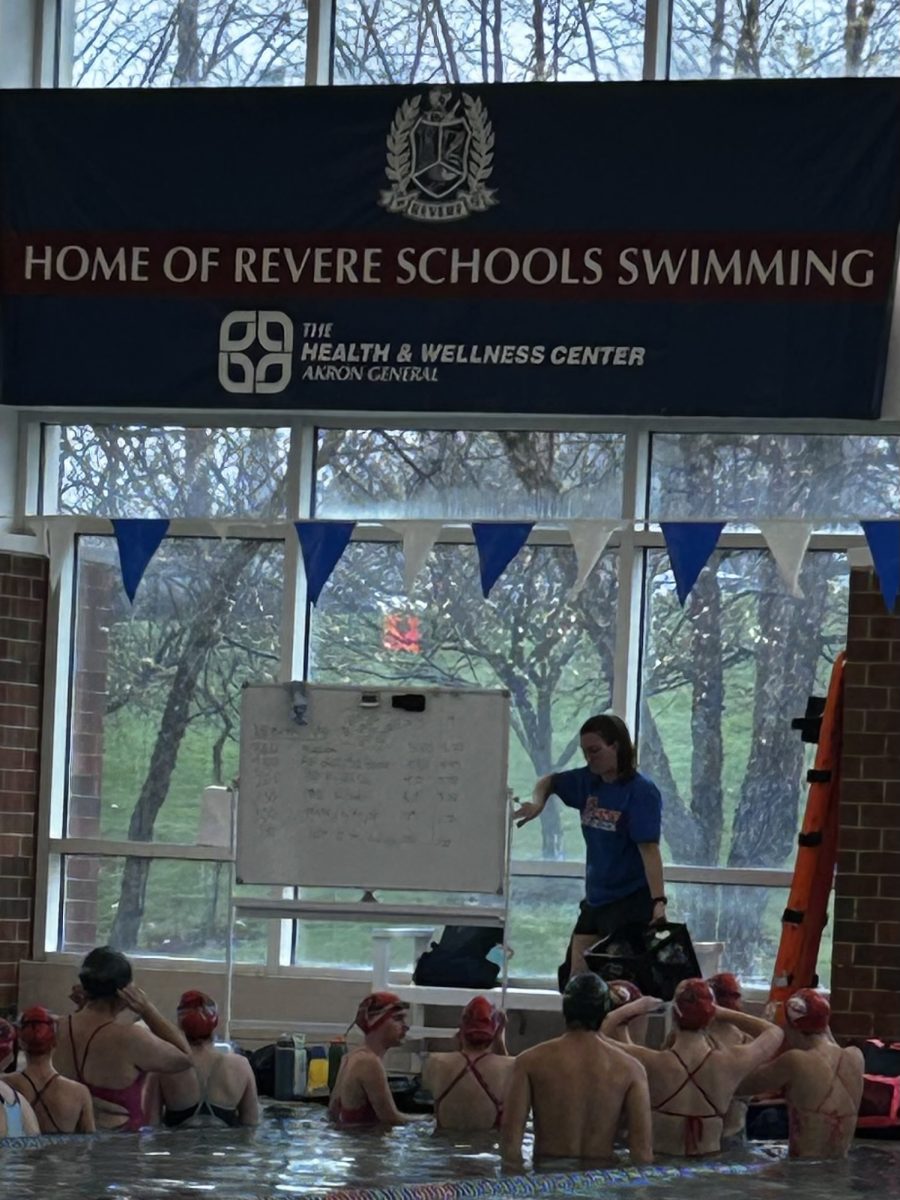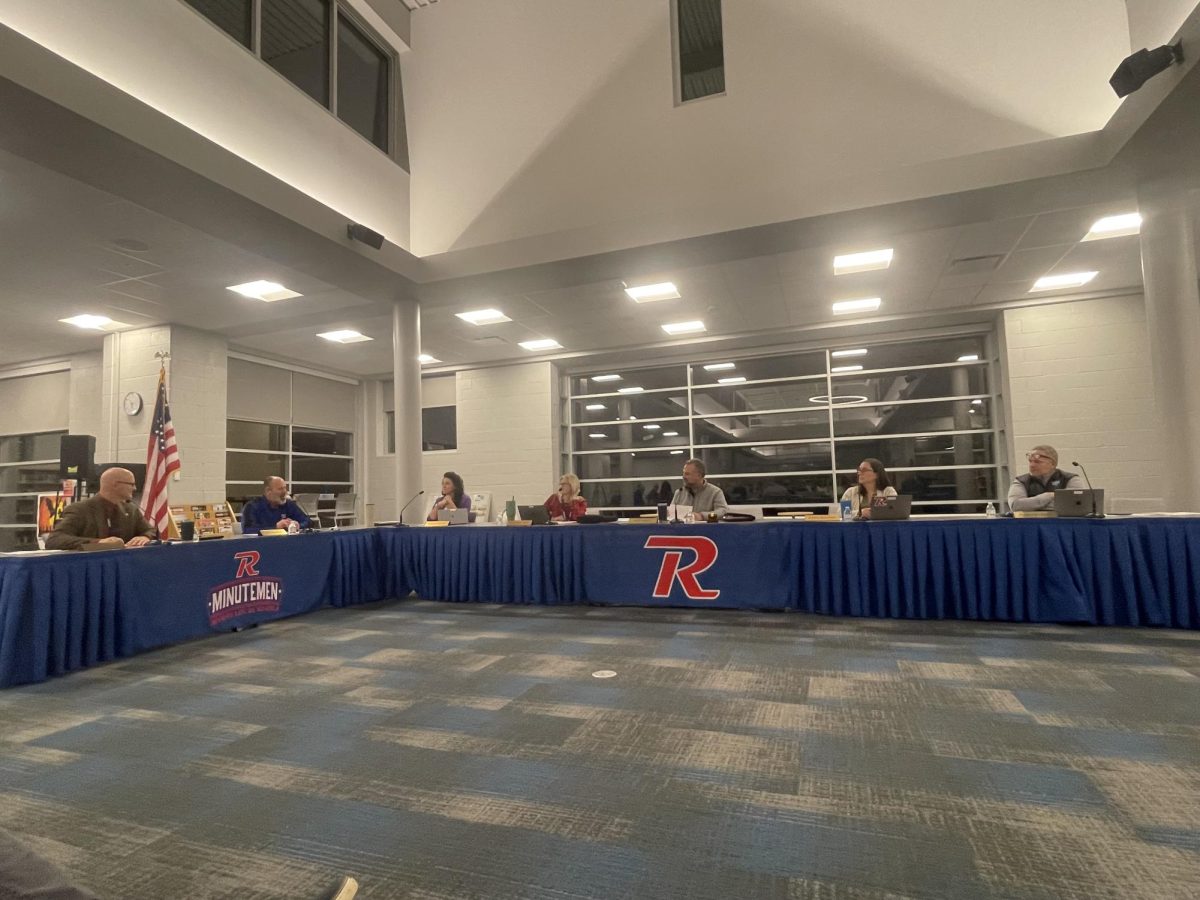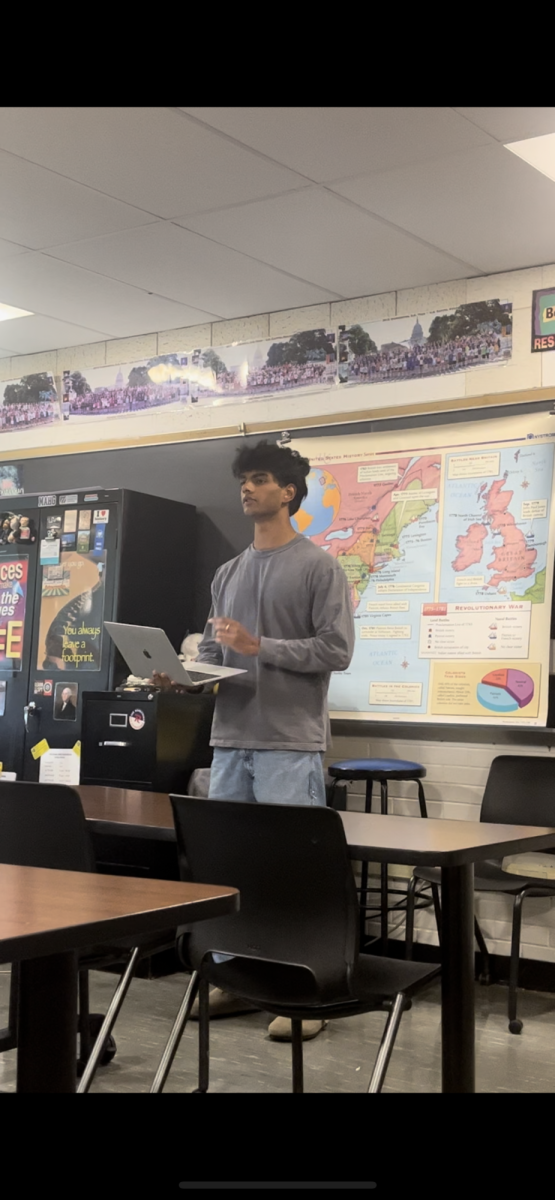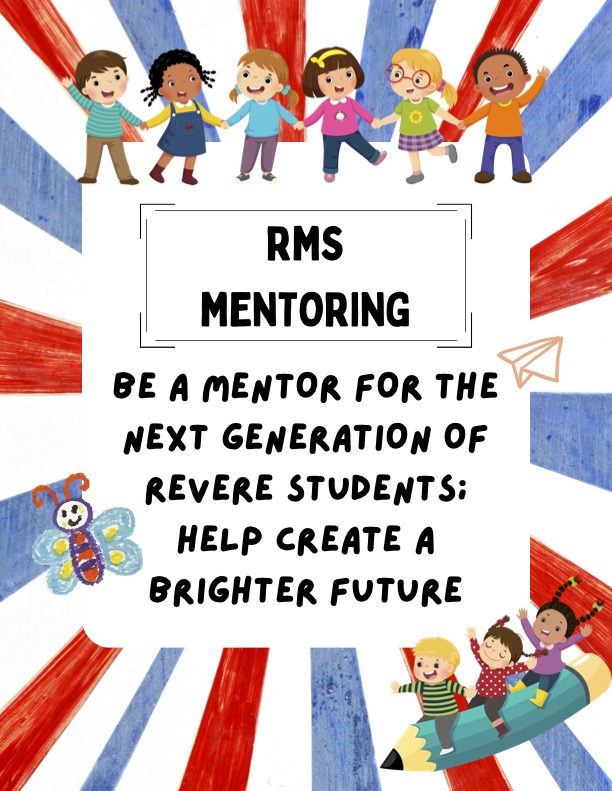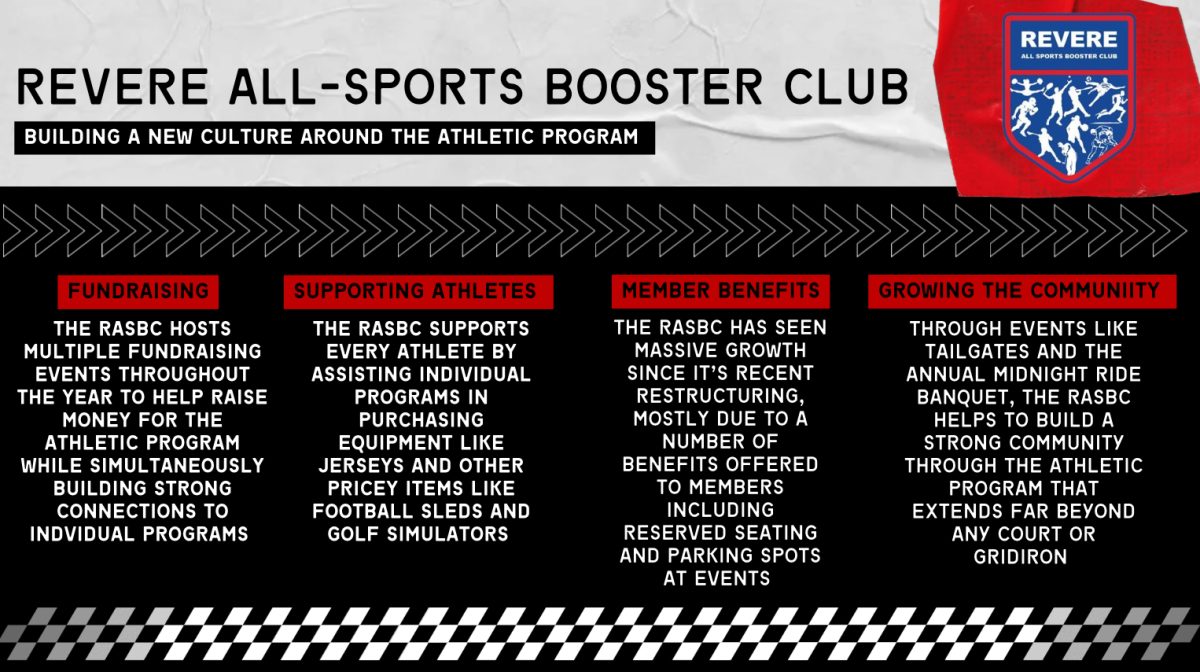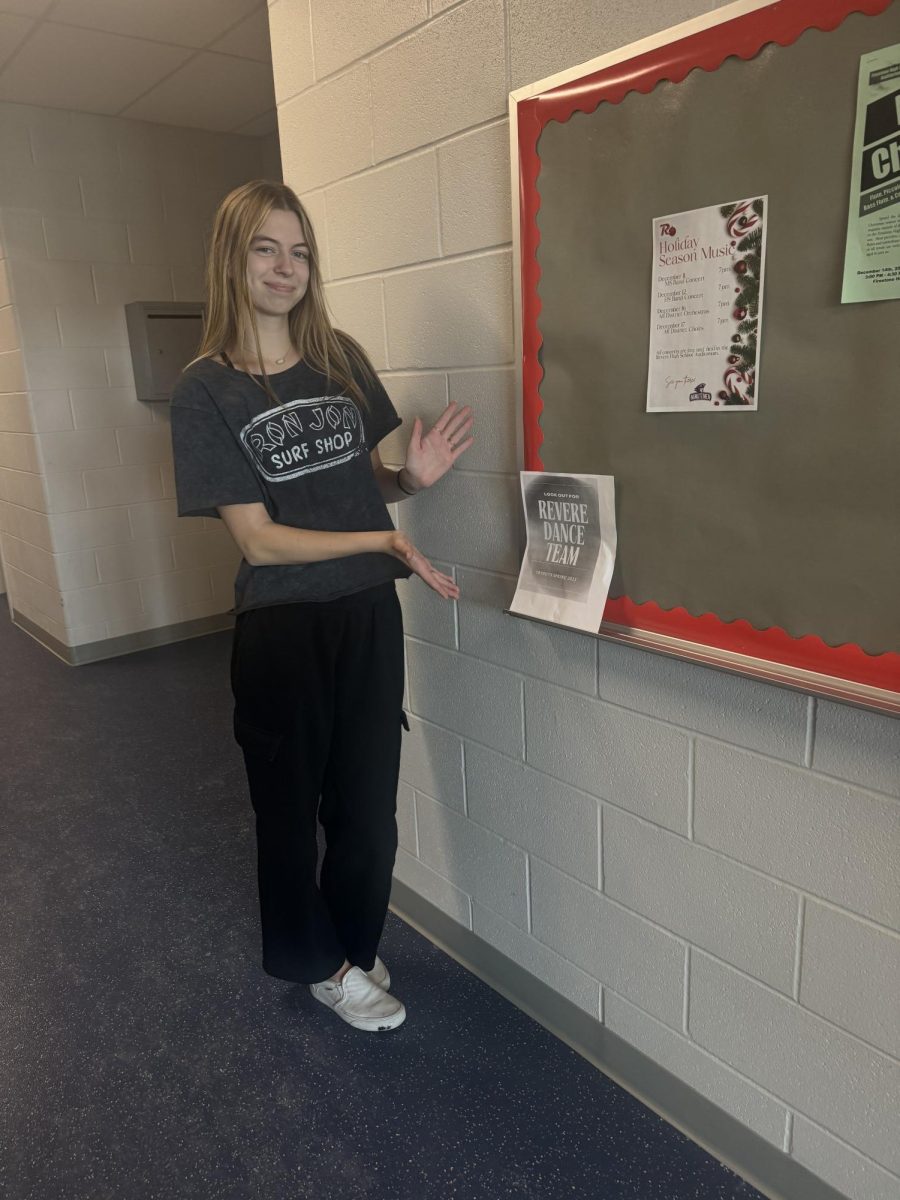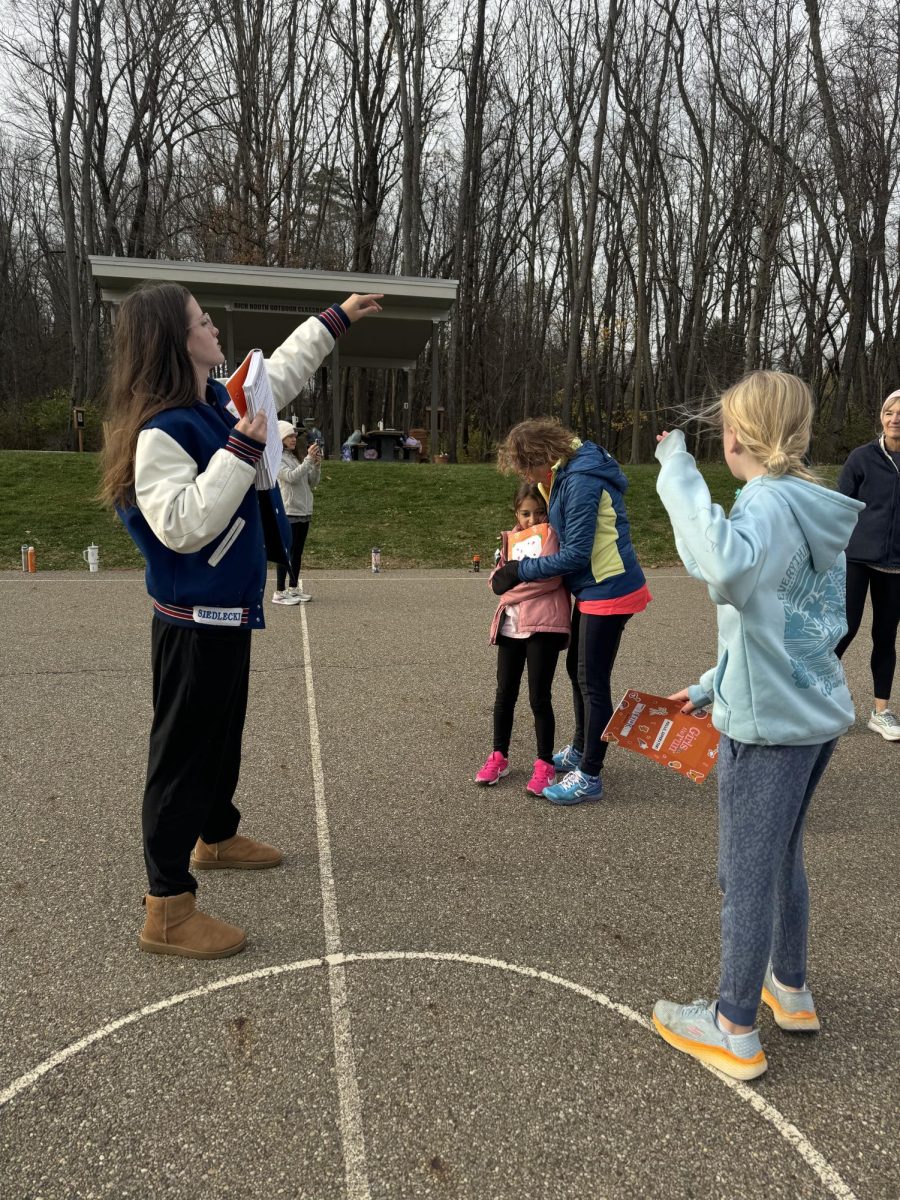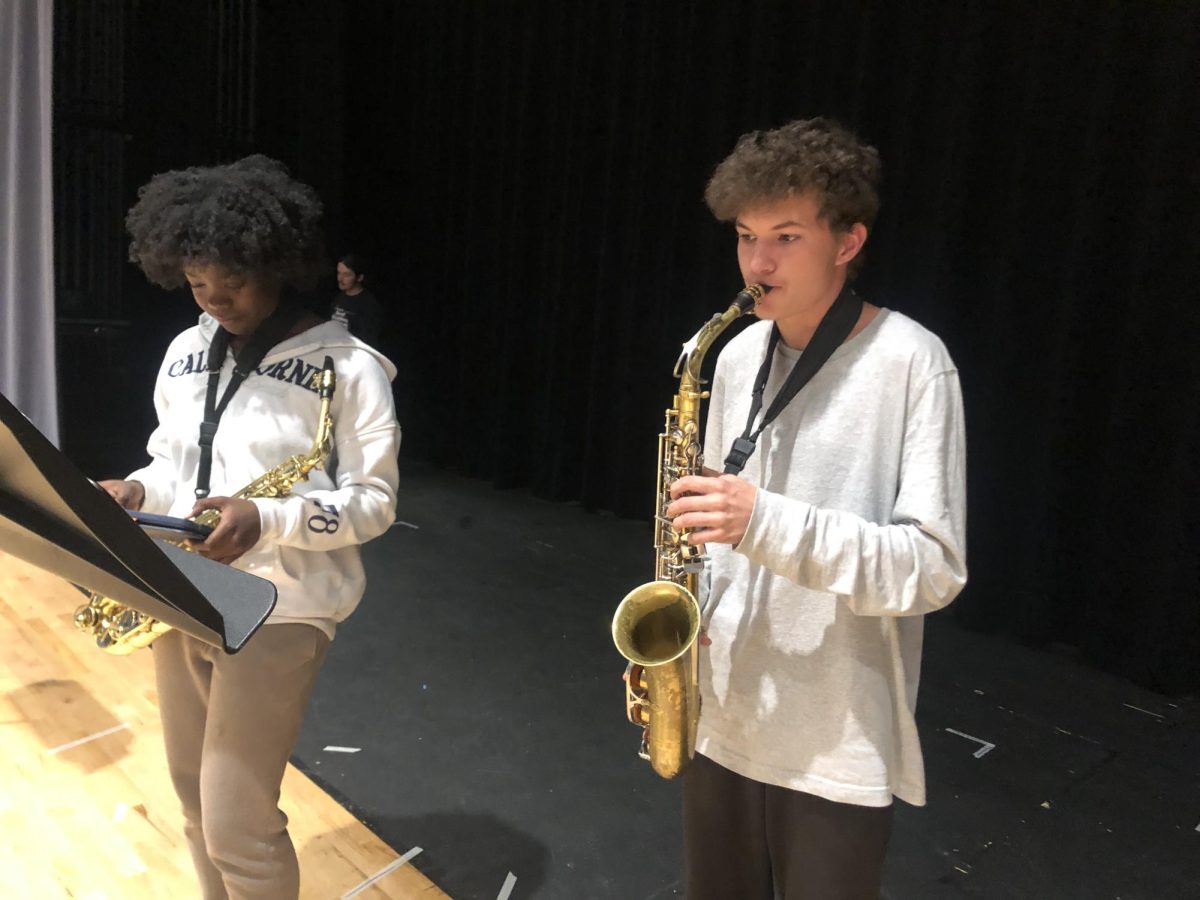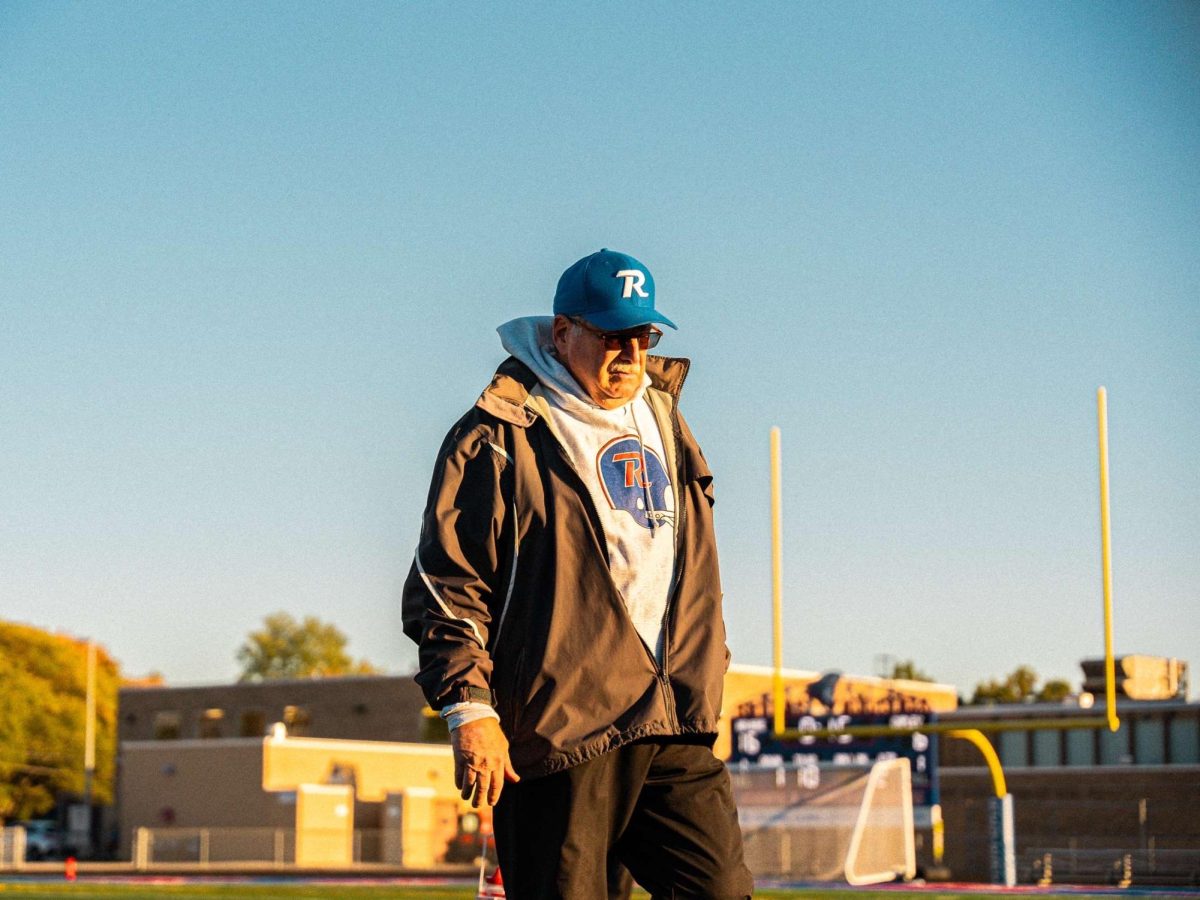The Board of Education has decided to call for a calamity day to ensure student safety during the April 8, 2024, total solar eclipse.
On Monday, April 8, 2024, a total solar eclipse will make its way across the nation, with Northeast Ohio in its path. Solar eclipses are events in which the moon aligns with the sun during the day, casting a shadow on Earth. When the moon perfectly aligns with the sun and blocks out all light as though it were night, a total solar eclipse occurs.
The upcoming eclipse’s totality will begin around 3:15 pm and end approximately three minutes later. Due to the timing of totality, concerns regarding bus schedules, driver safety and road safety arose. With bus drivers on the roads, elementary students preparing to exit schools and possible traffic issues as a result of the eclipse, Revere’s Board of Education decided to call off school, citing it as a calamity day.
Solar eclipses themselves are not a rare event as they occur a few times per year somewhere on Earth. An eclipse occurs when the moon blocks the sun, either partially or fully. A total solar eclipse is the latter, in which the moon aligns with the sun perfectly and blocks out all light, making it rarer than a regular eclipse. The last total solar eclipse in Northeast Ohio was over two hundred years ago, so experiencing such an event in the comfort of one’s home is a special opportunity according to astronomy teacher Robert Krisch.
“[Total solar eclipses are] special because we have not had one in this area for over two hundred years; the last [total] solar eclipse that occurred in Northeast Ohio was in 1806. So it was a long time ago. . . . Some people may be around to see the next one, which will be in 2099 . . . but they’re rare. They happen infrequently, and sometimes it’s a very long wait for the next one,” Krisch said.
For the April 8 eclipse, totality will last about three and a half minutes. During this period, viewing the eclipse with the naked eye will pose no harm, as the moon will completely cover the sun.
“The total blackness will be about three and a half minutes. And that’s when it’s safe to look at with your naked eye because you’re not going to see any light from the sun. It will all be blacked out,” Krisch said.
Outside of totality, however, it is extremely dangerous to look at the eclipse. When the moon uncovers the sun, looking at the star will cause damage to one’s eyes. To counter this, various websites—such as Amazon and others—sell solar eclipse glasses to those looking to view the eclipse, as wearing these protective lenses will allow everyone to safely watch the event; experts recommend such eyewear.
“Our eyes are very, very sensitive to the sun . . . [so] what you need is to be looking through special eyeglasses that are specifically for an eclipse. Those can be found everywhere; I would get some from Amazon. Do not look through a telescope or binoculars unless they have a special filter for the sun; you can go blind. . . . We want to be safe, we want to not look at the sun, we want to make sure we’re prepared for the event with the right lenses and with the right glasses to look through or your naked eyes will be hurt permanently,” Krisch said.
Damaging one’s eyes is not the only safety concern Revere and other community members have. Krisch warns drivers of the eclipse as it may be a distraction on the roads; he recommends people avoid driving during the event.
“Do not be driving, because drivers may not know what to do, and people are going to be very distracted. . . . This is a very special event, people on the roads will be distracted, and it will be dark. And it will be very confusing. And there may be accidents. So I would avoid driving during that time. I would get out there and see it with my special glasses on,” Krisch said.
As Northeast Ohio is in the path of totality and many U.S. citizens can travel to the state within a day, warnings about traffic congestion have risen. Thus, the Summit County Emergency Management Agency (EMA) urged several districts to change their schedules and plan for this event appropriately while urging community members to remain at home. Along with concerns about driver and student safety, Summit County’s warnings encouraged Superintendent Dr. Michael Tefs to recommend Revere make April 8 a calamity day.
“What [Summit County] expect[s] is a visitor surge. . . . [Ohio being] within a day’s drive for 70% of the nation’s population makes it a hotspot for Eclipse chasers, . . . [so] everyone [should] anticipate a significant increase in traffic volume. . . . That’s really what led me to making that recommendation,” Tefs said.
Along with EMA’s worries regarding traffic and dangerous roads, Summit County has asked schools if they could keep their parking lots open for those traveling to Ohio to host viewing parties. Keeping large lots open for cars, vans and other vehicles to park will encourage less traffic congestion.
“Emergency Management also said, ‘We actually like the parking lot empty because we think it’ll give a place for congestion to relieve itself.’ They say people will show up in RVs because they travelled here from Arizona, and they’re going to need a place to put their RV. They said ‘We would love to have big big school parking lots available,’ so we have since told the Summit County Emergency Management that . . . the parking lots will be available,” Tefs said.
Before coming to this decision, the school considered other options. The school wished to make the experience as educational as possible, even purchasing hundreds of solar eclipse glasses to give to students on April 8. Tefs describes the image he had for the day, and what Revere may have done if not for the eclipse’s timing.
“We bought glasses for every kid. Our original thought was just to have fun with it. We were going to have [everyone] go out to the stadium, and everybody’s going to have their glasses on. We were going to watch it as a district. . . . If this would have been an eclipse at ten o’clock in the morning, we’d have been all in . . . [to make this] an excellent educational opportunity,” Tefs said.
Not all plans come to fruition, however, as Revere decided to call off school instead to ensure the safety of the community. Though the school could not go through with their original plan, the district had other options when considering what to do on April 8, such as a teacher development day. That, too, was shot down, as employees wished to spend time with their families during such a special day.
“We did look [to] switch [to] a professional development day where kids are home, but teachers are in. But my employees want to be home with their kids [during] this eclipse. I don’t want them to have to come to work and then run out to try to get home to engage with this potentially once in a lifetime event,” Tefs said.
A variety of factors impacted the Board’s decision, with the safety of staff, students and parents being their top priority. Though the district could have made the day educational and kept schools running, Revere decided that the well-being of the community would come first, as described by board member Courtney Stein.
“It was a tough decision. We did our very best to keep everybody in school and to make sure we had an educational day, but I think in the end, this is probably the best decision to keep the students safe and to make sure that safety was really the top priority. . . . It was the best thing to do,” Stein said.
Revere’s closure on April 8, 2024, allows teachers, students, and community members to spend the special day with loved ones. To ensure viewing safety, Revere will hand out eclipse glasses to students and staff nearing April 8.

